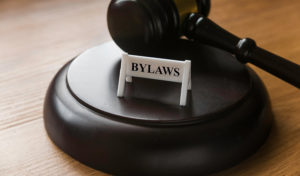This article is based off our July 2022 webinar titled “HOA Board Basics”. The full webinar is posted below. If you would like to be notified of futurre webinars sign up for our newsletter or email webinar@mycmg.com.
Serving on the HOA board is a challenging yet rewarding job. To ensure that you fulfill your role effectively, it’s essential to understand the HOA board basics.
HOA Board Basics: What Is an HOA?
A homeowners association (HOA) is simply a planned community consisting of homeowners and served by a board of volunteers. Its primary function is to maintain the community by completing various tasks which include dues collection, resident communication, and common area maintenance.
Apart from an HOA, other community associations include condominiums and cooperative associations. Sometimes, you will hear people refer to an HOA as a POA or property owners association. Regardless, all of these associations are organized and considered to be nonprofit corporations.
All nonprofit corporations in North Carolina are regulated by Chapter 55A of the North Carolina General Statutes. Condos created after October 1, 1986, follow Chapter 47C, while condos created before said date follow Chapter 47A. Finally, single-family homes and townhomes formed after January 1, 1999, follow Chapter 47F.
In South Carolina, though, there is really no statutory scheme for associations. However, South Carolina law does require HOAs to record their documents.
What Are the CC&Rs?
The Declaration of Covenants, Conditions, and Restrictions (CC&Rs) is essentially the constitution of your community. Next to federal, state, and local laws, the CC&Rs are the supreme law of the association. The CC&Rs basically tell owners what they can and can’t do. Everyone in the community must follow the declaration, but the board, in particular, should ensure the consistent and equitable enforcement of these covenants. While it’s important to be considerate, board members shouldn’t make too many exceptions.
What Are the Articles of Incorporation?
The articles of incorporation are what bring the association to existence. It essentially creates the HOA. This document is filed with the Secretary of State. And while a vast majority of articles don’t contain too many details, there are some that outline certain rules in the community. However, if a rule in this document conflicts with one in the CC&Rs, then the CC&Rs will be followed.
What Are the Bylaws?
 The bylaws are the procedural rules of the association. Here, you will find rules concerning the board, elections, voting rights, and quorum, among other things. This document dictates how many board members you should have, how they’re elected, how they’re removed when they’re elected, the voting powers of each unit, how many board meetings you should hold, and more.
The bylaws are the procedural rules of the association. Here, you will find rules concerning the board, elections, voting rights, and quorum, among other things. This document dictates how many board members you should have, how they’re elected, how they’re removed when they’re elected, the voting powers of each unit, how many board meetings you should hold, and more.
South Carolina law requires associations to record their bylaws. However, North Carolina has no such requirement. Therefore, it’s easier for associations in NC to amend their bylaws.
HOA Board Basics: Priority of Laws and Governing Documents
The hierarchy of laws and an HOA’s governing documents is as follows:
- Federal law (Fair Housing Act, the Freedom to Display the American Flag Act, the OTARD Rule, etc.)
- North Carolina General Statutes Chapter 47A, 47C, and 47F
- North Carolina Nonprofit Corporations Act (Chapter 55A)
- Local ordinances (when in conflict)
- Declaration of Covenants, Conditions, and Restrictions (CC&Rs)
- Articles of Incorporation
- Bylaws
How to Join the HOA Board
There are two ways you can join your HOA board:
- Be elected by the homeowners at a properly noticed meeting that has established and reached a quorum; or,
- Be appointed by the HOA board in the event of a vacancy.
For the latter situation, appointed board members usually serve out the remainder of the term of the vacant seat unless otherwise stated in the governing documents. Most associations don’t have a requirement to fill a vacant seat if the seat empties mid-term (for example, a board member resigned or was removed). But, some bylaws may require the board to fill the vacancy.
It’s important that every community has at least one board member. If all the positions become vacant and no one wants to serve, a court may appoint a receiver to take over the management of the association. This is widely considered to be a waste of the HOA’s money, though.
Length of Term
No two associations are exactly alike. As such, you must refer to your own bylaws or CC&Rs to know the term duration of each position. Some bylaws require directors to serve concurrently, while others have staggered terms. It’s also best to have an odd number of board members to avoid tie votes.
Assigning Positions
After electing board members, it’s time to assign them positions. There are four positions that are fairly universal to all HOAs: President, Vice President, Treasurer, and Secretary. The board is usually the one to pick out the officers.
While board members can serve dual roles, it’s best not to let one person take the role of President and Treasurer at the same time. This is because the two positions have some overlap and function as the other’s accountability checker. Thus, when one person fulfills both positions, they can easily hide information from other board members. It’s a one-way ticket to financial fraud.
HOA Board Basic Duties and Responsibilities
Here are the basic duties and responsibilities that board members must uphold.
1. Confidentiality
 While association business is far from top secret, the HOA board should treat it as such. You have access to the confidential information of homeowners, so disclosing them to a person outside of the board is a violation of privacy laws. It can also incite unrest and bad blood between neighbors, particularly if people know which homeowners are behind on their payments.
While association business is far from top secret, the HOA board should treat it as such. You have access to the confidential information of homeowners, so disclosing them to a person outside of the board is a violation of privacy laws. It can also incite unrest and bad blood between neighbors, particularly if people know which homeowners are behind on their payments.
It’s also a good idea to keep vendor contracts private. No vendor wants to disclose their pricing strategies and services. If an owner gets their hands on this information, they could use it as leverage or help other vendors.
Make sure that all discussions made in executive sessions remain confidential. These discussions are for the board’s ears only. That means no recording of these sessions, whether on video or audio. Stick to meeting minutes!
2. Fiduciary Duty
An HOA board has a fiduciary duty to the association. This means prioritizing the best interest of the community above all else. You may need to make unpopular decisions or decisions that you disagree with. But, if they’re the most beneficial for the HOA, then it’s your job to go through with them.
3. Enforcement of Rules
The board has a responsibility to enforce the community’s rules. As previously touched upon, consistent and fair enforcement is absolutely fundamental. But, you can still add a human touch to the equation — don’t overdo it. Never pick and choose which rules to enforce and whom to enforce them on. This is a surefire way to get served with a discrimination or selective enforcement lawsuit.
Finally, the board members themselves should follow the rules at all times. Courts aren’t particularly forgiving when it comes to board members who enforce the rules but also break them at the same time. Being on the board doesn’t give you a free pass to approve all of your own architectural requests and erase all of your violations.
4. Management and Control
Even if you decide to hire a management company (which is a good idea, by the way), you should never lose your grip on what’s happening in your community. Make sure to remain active in every aspect of management. Boards that don’t devote enough time to the community or couldn’t care less can get in big trouble down the road.
5. Oversight of Agents and Vendors
The board should supervise all of its vendors and agents. Having a management company doesn’t give you an excuse to slack off. The board ultimately has the final say on things, so make sure to oversee everything. If some agents or vendors aren’t doing a satisfactory job, don’t be afraid to terminate your agreement with them or decline to renew their contracts.
HOA Board Basics: Best Practices to Adopt
Some best practices every board should implement in their management endeavors include:
- Take an Ethics Pledge. Ask all board members to sign an ethics statement during their first term. While it’s not a requirement, it’s certainly a red flag if one or more board members refuse to take this pledge.
 Respond Quickly. When faced with a complaint, request, or concern, make sure to respond as soon as you can. There’s no use in running away from your problems — they’ll keep coming back.
Respond Quickly. When faced with a complaint, request, or concern, make sure to respond as soon as you can. There’s no use in running away from your problems — they’ll keep coming back.- Achieve Balance. Serving on the board is important, but you shouldn’t let it take over your life. All board members have personal and professional lives they must juggle. The trick is to strike a good balance among these aspects of your life.
Understanding Conflicts of Interest
Conflicts of interest are a major source of problems for homeowners associations. Remember to act in a manner that will benefit the association and not yourself. Making a decision to the association’s detriment is a violation of your fiduciary duty.
Common Instances of Conflicts of Interest
- Board members enforce the rules on other people but not on themselves or their friends;
- Receiving kickbacks from vendors or choosing vendors who offer benefits;
- A board member or friend/relative serving as a vendor;
- Receiving a benefit, even if it’s not to the detriment of the HOA but is not disclosed to the community; and,
- Theft.
What to Do About Conflicts of Interest
Board members should always remember their fiduciary duty. Always put the association first. If there’s a potential conflict of interest, disclose it immediately. In certain cases, you may need to recuse yourself. For example, if the board is considering hiring a landscaping company owned by a friend of yours, don’t let yourself get involved in the decision. Even if something isn’t inherently inappropriate but has the appearance of impropriety, it’s best to refrain from it.
Board Member Liability and Protection
What if a disgruntled homeowner names you specifically in a lawsuit? Can a board member be held liable?
In most instances, directors are not held personally liable for the decisions or actions they made while serving on the board. But, there are exceptions. If a board member acted in an extreme manner that their actions could be considered criminal, then a court may hold them responsible. The same applies if a board member acted intentionally against the community’s interests.
Keep These HOA Board Basics in Mind
Being a board member is often a thankless job. You don’t get paid, and homeowners even greet you with contempt sometimes. But, it can be very fulfilling knowing you’re doing your best to keep the community in the best shape possible.
An HOA management company, though, can significantly lighten your workload. Call Cedar Management Group today at (877) 252-3327 or contact us online to learn more about our services.
RELATED ARTICLES:
- What Every Board Member Should Know About HOA Collections
- Is Recording HOA Board Meetings Legal?
- How To Handle Bullies On Your HOA Board






